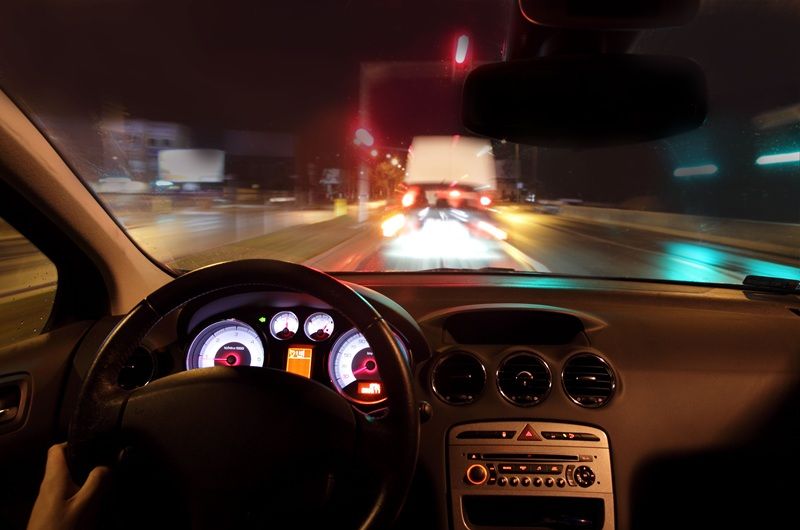A reckless driving charge in Virginia is more than just a traffic ticket it is a criminal offense that can result in fines, jail time, and other long-term consequences. Understanding the penalties and legal options can help you make informed decisions if you face these charges.
Here, you will learn what qualifies as reckless driving, the legal consequences of a conviction, and how a reckless driving attorney in Fairfax County can help. It also covers frequently asked questions to help you better understand the legal nuances and your options.
What Qualifies As Reckless Driving In Virginia?
Reckless driving involves driving behavior that endangers life, limb, or property. It means an officer has discretion in determining whether an act is reckless. Some of the most common ways drivers are charged with reckless driving include:
- Excessive Speeding: Driving 20 mph over the posted limit or over 85 mph, regardless of the speed zone.
- Aggressive Maneuvers: Weaving through traffic, tailgating, or racing other vehicles.
- Failure to Control the Vehicle: Losing control on a curve or in bad weather.
- Passing Violations: Overtaking on a curve or hill where visibility is limited.
Since reckless driving is a crime, a conviction stays on your record permanently. Understanding the penalties is the first step in protecting yourself from harsh consequences.
What Are The Legal Consequences Of Conviction?
Reckless driving in Virginia carries serious legal consequences that extend beyond a simple traffic ticket. It comes with potential fines, jail time, demerit points, and even license suspension. Understanding these consequences can help you take the right steps in your defense.
Fines & Court Costs
The court may fine offenders up to $2,500 for reckless driving, depending on case details, driving history, and the judge’s discretion. Higher fines can apply to excessive speeding, aggressive driving, or repeat offenses. Additional costs may include court fees, driver improvement courses, and towing or impound fees.
A conviction also raises insurance rates, as insurers classify it as a high-risk offense. Some drivers see their premiums double or triple, with increased costs lasting several years.
Jail Time & Probation
A conviction can lead to severe penalties such as jail time, depending on the circumstances. Since it is typically a Class 1 misdemeanor, it carries a maximum jail sentence of 12 months. While not every case results in incarceration, judges can impose it in cases involving excessive speed, aggressive driving, or endangering others.
In some cases, the court may offer probation instead of jail time. This could involve supervised probation, community service, or completing a driver improvement program. However, violating probation may result in revocation and jail time.
Demerit Points & License Suspension
A reckless driving conviction in Virginia adds six demerit points to your driving record. According to the Virginia Department of Motor Vehicles (DMV), these points stay on your record for 11 years. It can impact insurance rates and driving privileges.
Moreover, a judge has the authority to suspend your license for up to six months following a reckless driving conviction. The suspension period depends on factors such as speed, prior offenses, and whether reckless driving involved DUI or other aggravating factors.
These penalties can have lasting financial and legal consequences, from higher insurance rates to potential employment challenges. In addition, some factors can enhance or mitigate these punishments. Understanding how these elements affect your case can help you make decisions and explore your options.
How Penalties Vary Based On Circumstances?
The legal consequences for reckless driving in Virginia depend on the specifics of each case. In some circumstances, it may be charged more harshly, while in others, the court may reduce it to improper driving. Understanding these differences can help prepare for what’s ahead.
Aggressive Driving
Aggressive driving goes beyond excessive speed. Courts may charge reckless driving when a driver violates traffic laws in a way that harasses, intimidates, or creates a hazard for others. Certain actions increase the likelihood of harsher penalties, including:
- Following motor vehicles too closely. Tailgating increases the risk of collisions and can be seen as aggressive behavior.
- Failing to yield the right-of-way. Ignoring right-of-way rules can lead to accidents and legal consequences.
- Passing unlawfully. Unsafe passing puts other drivers at risk and can result in enhanced penalties.
- Ignoring lane markings. Swerving between lanes without signaling can indicate reckless intent.
- Evading traffic control devices. Running red lights or ignoring stop signs endangers pedestrians and other drivers.
Courts typically charge aggressive driving as a Class 2 misdemeanor. If a driver intends to injure someone, the charge can increase to a Class 1 misdemeanor, which carries up to 12 months in jail and a license suspension. Judges may also require offenders to complete a driving program as part of sentencing.
Improper Driving
Improper driving is a traffic infraction rather than a criminal offense. Unlike reckless driving, it does not carry the risk of jail time or a misdemeanor conviction. Instead, the maximum penalty is a $500 fine. Drivers convicted may also receive three demerit points on their driving record.
Courts may reduce reckless driving to improper driving when the violation was unintentional, did not endanger others, and caused no accident. A reduced charge helps you avoid a criminal record and minimizes the impact of the offense.
Understanding the factors that affect reckless driving penalties can help you make informed decisions about your case. Additionally, reading common concerns and frequently asked questions can provide further insight into legal options and possible defenses.
What Are FAQs About Reckless Driving In VA?
Legal nuances can be confusing, especially for those facing charges for the first time. However, reading related scenarios can provide insight into possible outcomes and defense strategies. Below are some frequently asked questions that can help clarify what to expect.
Can Offenders Expunge A Reckless Driving Conviction In VA?
Virginia law does not allow offenders to expunge a reckless driving conviction unless the court dismisses the charge or finds them not guilty. Once convicted, the offense remains permanently on a criminal record and stays on a driving record for 11 years.
This can affect employment opportunities, security clearances, and professional licenses. Some employers, particularly those in government or transportation sectors, conduct background checks that may flag a criminal conviction.
What Happens If An Offender Ignores A Reckless Driving Charge?
Ignoring a reckless driving charge in Virginia can lead to a bench warrant, license suspension, and additional penalties. Moreover, failing to appear in court may result in arrest and further legal consequences. The court may also suspend driving privileges and issue a default conviction, which can include fines and potential jail time.
What Are The Common Defenses Against The Charges?
Reckless driving carries serious penalties, but not every case results in a conviction. The court must prove that your driving met the legal definition of reckless driving. Several defense strategies may help reduce or dismiss the charges, including:
- Inaccurate Speed Measurement – Radar and LIDAR devices require proper calibration, and inaccurate readings may result in an invalid charge.
- Faulty Officer Observation – Officers may misinterpret driving behavior, especially in poor weather conditions or heavy traffic.
- Emergency Situations – Medical emergencies or mechanical failures may justify certain driving actions and serve as a legal defense.
- Lack of Evidence – The prosecution must prove reckless driving beyond a reasonable doubt, and insufficient evidence can weaken their case.
- Improper Traffic Stop -Officers must have reasonable suspicion to pull you over, or the court may dismiss the charge.
Experienced defense attorneys understand these defenses and can tailor a strategy based on the details of your case. They can challenge weak evidence, question officer observations, and negotiate for reduced penalties. Legal representation increases your chances of minimizing the impact of a reckless driving charge.
Why Seek Assistance From Fairfax County Criminal Attorneys?
A reckless driving charge can have a lasting impact, but legal representation may help minimize the impact. At Fairfax County Criminal Attorneys, we review case details, challenge evidence, and build defense strategies tailored to your situation.
Each case presents unique challenges, and having an experienced legal team can make a difference. We provide clear guidance, explain your legal options, and represent you in court. Whether seeking a reduced charge or a case dismissal, we focus on achieving a more favorable outcome.
If you are facing a reckless driving charge, contact us today for a consultation. With our extensive experience, we know how to build strong defenses. We are ready to help you understand your options and fight for your future.
Reckless driving is a criminal violation, carrying serious penalties, including fines, jail time, demerit points, and license suspension. Courts determine penalties based on factors such as speed, aggressive driving behavior, prior offenses, and other aggravating factors. In some cases, reckless driving may be reduced to improper driving, a lesser offense.
Drivers facing reckless driving charges must understand their legal rights and the defense options available. Consulting Fairfax County Criminal Attorneys can help fight the charges, negotiate reduced penalties, and protect your driving record.






